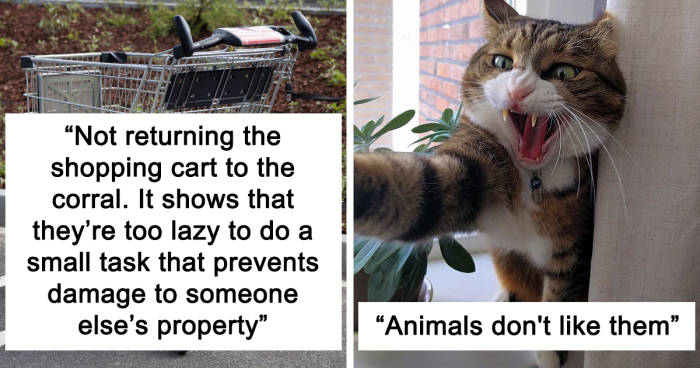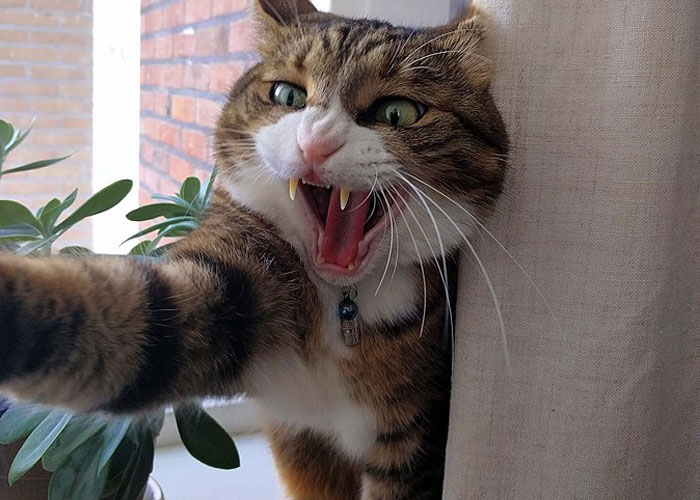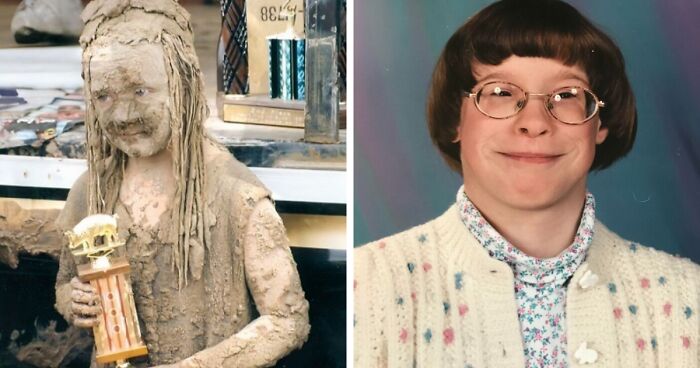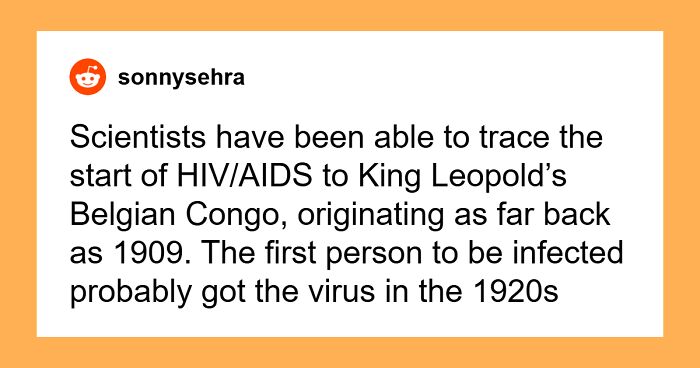We all want to surround ourselves with positive energy and nice people. After all, no man is an island and we all live in close proximity to one another.
In some cases, however, dealing with other people may be a daunting task. Some people in particular may be very difficult to be around. Think of that selfish relative everyone in your family avoids, or that manipulative coworker who seems to live for the drama.
“What are subtle signs that someone is a 'bad' person?” someone wondered on Ask Reddit, and the question hit a soft spot for many. Below we wrapped up the most illuminating responses and red flags that people see in those they don’t want to cross paths with.
Most of us like labeling and generalizing people and things into categories. We may see some things as good, others as bad. That’s especially true when talking about other people, who we may be tempted to call a “good” or a “bad” person.
So to find out more about the psychology behind categorizing things and people into polar opposites, we reached out to Helen Marlo, a licensed clinical psychologist and Jungian psychoanalyst who provides psychotherapy, psychoanalysis, and consultation. Helen, who is also a Professor of Clinical Psychology and the Department Chair at Notre Dame de Namur University, was happy to share some very interesting insights into the topic with us.
This post may include affiliate links.
 Mean to animals or service workers
Mean to animals or service workers
 Using religion as an excuse or forcing their beliefs on others.
Using religion as an excuse or forcing their beliefs on others.
I don’t understand how a bad person, throwing quotes from the Bible or contradicts what they say verses what they do , and is ok with it
In many ways, Helen argues, our minds are structured to categorize, often into opposites. “For example, by seeing something as good or bad. This is one way to reduce complexity and manage the amount of diverse stimulation that comes our way. An ‘either-or’ stance can be easier to process, cognitively, than a ‘both-and’ mindset that requires more critical examination,” she explained.
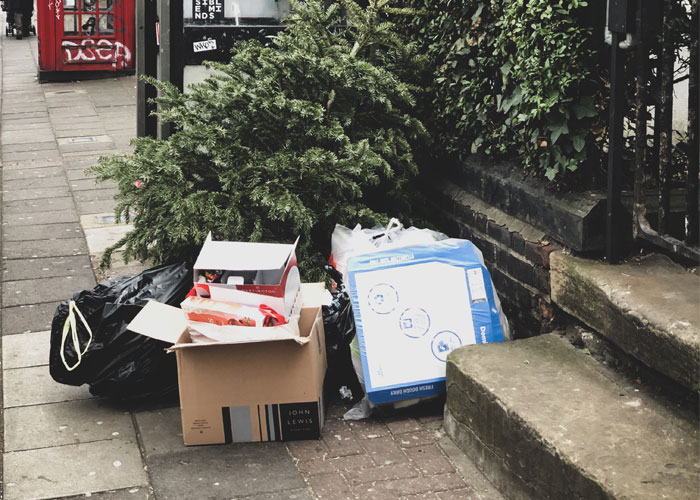 They litter
They litter
MAY ALL WHO LITTERS PILLOWS BE EVER WARM,AND MAY THEY ALWAYS TRIP ON THEIR WAY DOWN THE STAIRS!!!
Moreover, categorizing into good or bad also helps with managing anxiety. “If I define good and bad in clear terms then I don’t have to grapple with the gray or the overlap. I don’t have to acknowledge or understand the interplay of both the good and the bad. Acknowledging they can both co-exist in myself or another person or thing can arouse strong feelings of confusion, anxiety, shame, defensiveness, or fear, for example,” Helen explained.
 Not returning the shopping cart to the corral. It shows that they're too lazy and self-centered to do a small task that prevents damage to someone else's property.
Not returning the shopping cart to the corral. It shows that they're too lazy and self-centered to do a small task that prevents damage to someone else's property.
I don't put it away to protect peoples cars, I do it to be nice to the employees who have to go round up the carts
 When they refuse to wear a mask during a global pandemic.
When they refuse to wear a mask during a global pandemic.
That means that having defined categories is a passive process so it is less cognitively and psychologically taxing for our minds. “We can apply a kind of formula which reduces the stress of applying critical thinking, imagination, or analysis to whatever we are categorizing.”
Interestingly, when we have a category, our minds can become lazy, Helen warns, and fail to see the exceptions or things that fall outside the category.
 Bashing or being rude to service staff.
Bashing or being rude to service staff.
Being rude to anyone is a d*ck move, but being rude to someone who literally is not allowed to walk away from you is in a category by itself.
 People who don’t pick up after their dog.
This tells me they’re inconsiderate, rude, lazy, irresponsible, unhygienic, selfish, gross, disrespectful, negligent, careless, and vile.
(And I don’t mean occasionally forgetting a doggy bag or something. I mean people who don’t in general)
People who don’t pick up after their dog.
This tells me they’re inconsiderate, rude, lazy, irresponsible, unhygienic, selfish, gross, disrespectful, negligent, careless, and vile.
(And I don’t mean occasionally forgetting a doggy bag or something. I mean people who don’t in general)
I'm in an office building next to a large apartment, and their are loads of people who take their dogs over to our parking lot to poo and then don't pick it up. I have started calling out, "Can you please pick up after your dog?" A lot of times they shrug and say, "I forgot a bag." So I have a roll of plastic bags and I make sure I have one in my pocket for them!
We also wondered why people frequently are judgmental, and this may come down to a variety of reasons. For example, judging replaces experiencing, being, and/or feeling, which can feel more threatening, Helen said. “It is easier, quicker and less cognitively taxing—they don’t have to apply thoughtful or critical analysis to a situation.”
 They never take accountability for their actions. No matter the situation, it always someone else’s fault.
They never take accountability for their actions. No matter the situation, it always someone else’s fault.
A person stepped on my dog's foot once while walking him. Total accident, you know how they can get under foot. It was a bad step tho and the dog was bleeding. "I didn't do that" the person said immediately, next to irrefutable evidence he did. Even though it was an accident, they couldn't admit they had done it. They're not in my life anymore. The dog was fine after a few days!
 If someone regularly complains about their friends behind their back to you, chances are they are complaining about you as well. Steer clear of people like this.
If someone regularly complains about their friends behind their back to you, chances are they are complaining about you as well. Steer clear of people like this.
In some cases, judging is people’s preferred cognitive style. Other times, people judge because they lack understanding and do not critically examine things. Helen quoted Jung: “Never do human beings speculate more, or have more opinions, than about things which they do not understand” (Jung 1955–56/1970, CW 14, ¶737).
Others may be more judgmental because they lack empathy and have few figures in life who model empathy. Some reasons for this, Helen added, may be “psychological factors including being raised with either a lot of judgment or very little judgment; being raised in a home with strong, absolute values or no values.”
 They only do nice things when they want something in return.
They only do nice things when they want something in return.
Or they only interact with you when they need a favor but exclude you from other parts of their life yet claim they are a friend.
 they only interact with you when it’s convenient for them and they’re never happy for other people’s successes
they only interact with you when it’s convenient for them and they’re never happy for other people’s successes
They are incapable of paying anyone a compliment or taking pleasure in anyone else's success. There was a woman I used to work with, and if someone got promoted, it wasn't "congratulations" it was "Do you really think you're up to the additional responsibility?" If someone got engaged, it was "well I hope he doesn't mind having a working wife." She could never, ever pay a simple straightforward compliment, it was always twisted into spiteful criticism.
 When someone says 'lighten up' or 'it was just a joke' when they say something offensive. It's deflecting from the offended person's feelings, and it's an invalidation method. It's often used as a way for the toxic person to feel okay about making sexist/racist/homophobic-leaning jokes or micro-aggressions.
When someone says 'lighten up' or 'it was just a joke' when they say something offensive. It's deflecting from the offended person's feelings, and it's an invalidation method. It's often used as a way for the toxic person to feel okay about making sexist/racist/homophobic-leaning jokes or micro-aggressions.
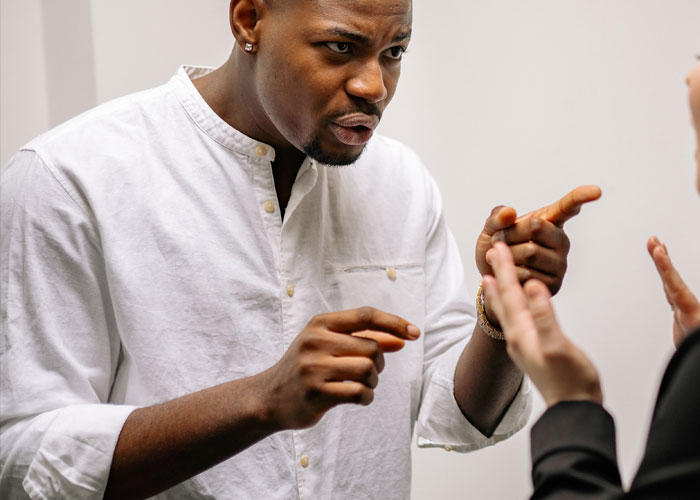 They make little belittling comments about everyone.
They make little belittling comments about everyone.
 Moral elitism, especially the subtle kind. If you have to tell us you're this perfect wholesome empath healer every 5 seconds, you're probably hiding something.
Moral elitism, especially the subtle kind. If you have to tell us you're this perfect wholesome empath healer every 5 seconds, you're probably hiding something.
I have never met a person who told me they are a good person who actually was a good person. If you are a good person you do good and can tell about what you did. If you can't tell me about the good you actually did but still feel the urge to tell me that you are such a great person, I really doubt that's true
 People who always have to one-up you. I have a work colleague who, if I mention I have a headache, has to counteract with all of her aches and pains and explain that what I feel can't possibly compare. It's not a competition.
People who always have to one-up you. I have a work colleague who, if I mention I have a headache, has to counteract with all of her aches and pains and explain that what I feel can't possibly compare. It's not a competition.
I told a woman I was having Prostate problems. she said "I had mine out years ago" Nice trick lady !
 “If you can’t handle me at my worst, you don’t deserve me at my best”
“If you can’t handle me at my worst, you don’t deserve me at my best”
Indeed. This is my sister's mantra and she treats her friends and loved ones very poorly a lot of the time.
 They find out really personal information about you and use it against you in front of people or at their sickest convenience. Cough sister in law cough.
They find out really personal information about you and use it against you in front of people or at their sickest convenience. Cough sister in law cough.
 “I’ve got no filter...”
Tends to go with people who do rude things just because they’re “not allowed” to do them.
“I’ve got no filter...”
Tends to go with people who do rude things just because they’re “not allowed” to do them.
The problem is that people love to claim that they have no filter or are only telling the truth when they're going out of their way to say really hurtful things. If you say: I really don't like that dress, the blue one looks so much better on you, that's something I'd accept as having no filter, you are too fat for this dress, the blue ones is hiding you better is just being a glassbowl
 When they don't think they've done anything wrong after saying something hurtful, and they just tell the person to 'get over it' or say something like, 'Why do you care what they say?' Because hurtful words HURT. THEY HARM PEOPLE.
When they don't think they've done anything wrong after saying something hurtful, and they just tell the person to 'get over it' or say something like, 'Why do you care what they say?' Because hurtful words HURT. THEY HARM PEOPLE.
 People who pull the 'silent treatment.' You're a grown-ass adult. Stop acting like a 4-year-old.
People who pull the 'silent treatment.' You're a grown-ass adult. Stop acting like a 4-year-old.
I don't think I do the 'silent treatment', but there are times I tell whoever I'm in an argument with (usually my SO) I need to not talk to them for a little while because I don't want to say anything I'll regret. Is that the same thing?
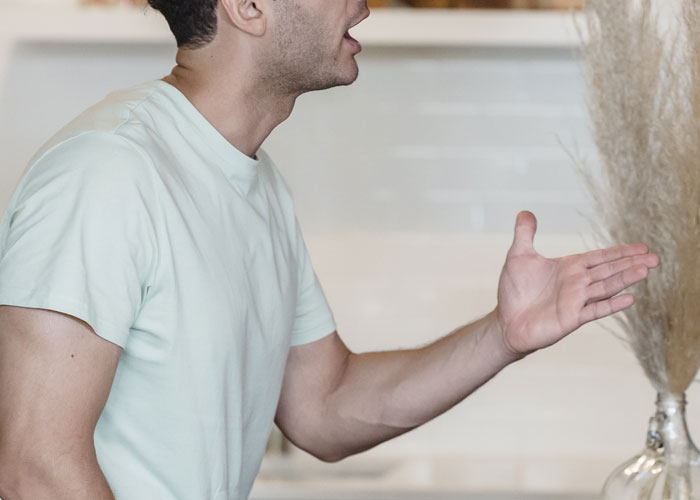 When someone writes you off as 'crazy' or 'dumb' for disagreeing with them. Instead of engaging in an argument or discussion, they try to win by diminishing your credibility and breaking down your confidence.
When someone writes you off as 'crazy' or 'dumb' for disagreeing with them. Instead of engaging in an argument or discussion, they try to win by diminishing your credibility and breaking down your confidence.
I’ve experienced this in the workplace as… “Your opinion doesn’t count because you haven’t worked here long enough.” Soooo… my 20 years of experience suddenly doesn’t matter because they didn’t occur HERE? Yet I was hired HERE because of my experience.
 when someone is a bad listener (but likes to talk abut themselves) . Sounds like a minor thing but at the core of it is lack of empathy. It's an early sign of toxicity
when someone is a bad listener (but likes to talk abut themselves) . Sounds like a minor thing but at the core of it is lack of empathy. It's an early sign of toxicity
 From the most important to the least:
They take small digs at you or your life, unprovoked.
They put doubt in your perception.
They make you feel awful about being yourself.
They feel insulted when they shouldn't be.
They bring you down.
They think they're better than others.
From the most important to the least:
They take small digs at you or your life, unprovoked.
They put doubt in your perception.
They make you feel awful about being yourself.
They feel insulted when they shouldn't be.
They bring you down.
They think they're better than others.
 I’m usually wary of people who say, 'I just call it as I see it' or 'I’m just blunt!' As if those are virtues. I feel like they use it as an excuse to hurt people’s feelings.
I’m usually wary of people who say, 'I just call it as I see it' or 'I’m just blunt!' As if those are virtues. I feel like they use it as an excuse to hurt people’s feelings.
I'm blunt and would never say anything behind your back that I wouldn't say to your face, but I'm careful what I'm blunt about. I would rather go out of my way not to hurt someone's feelings. Even if it means I get hurt instead.
 "If you loved me you'd..."
I've been guilty of this one and someone mentioned that in a similar thread. I've done my best to be better ever since.
"If you loved me you'd..."
I've been guilty of this one and someone mentioned that in a similar thread. I've done my best to be better ever since.
For me it often goes hand in hand with "I only do this because I love you" to excuse any kind of hurtful behavior.
 When someone constantly brings up the past. They can’t and won’t let it go, no matter how many times you explain and apologize, and they hold it against you every time.
When someone constantly brings up the past. They can’t and won’t let it go, no matter how many times you explain and apologize, and they hold it against you every time.
I’m going to explain this from my personal perspective (and that may mean some down votes)… I never set out to hold something against someone. Mistakes happen. All of us make errors in judgment. I’m no exception. I’ve ended up hurting people and I should’ve made better choices. However, for me… if I find myself unable to “let something go”… and I ruminate on it… it’s because I’m not getting what I need from the other person who “harmed” me. For example… a colleague once incorrectly “corrected” me in front of a group of other colleagues. I knew he was wrong. Later, he apologized, but in private. He never corrected his mistake in front of our other colleagues… AND THAT’S WHAT I NEEDED FOR HIM TO DO, in order to feel better about the situation. This happened 10 years ago. I’ve never brought it up. BUT… I’ve also never forgotten about it. My advice is to ask others, “What do you need from me in order to let this go? How can I make it right?”
 When they lie about really mundane, meaningless things. It might not seem like a big deal in the moment, but they're probably just not a truthful person in any situation.
When they lie about really mundane, meaningless things. It might not seem like a big deal in the moment, but they're probably just not a truthful person in any situation.
For me that depends on why they lie. I do accept white lies that are truly protecting people. Like telling a child that their pictures are pretty even though they look like the dog ran over the paper with dirt on their paws. Or a birde being immensely enamored with her dress, just loving it obviously, then telling her she's beautiful even when the dress looks like last years dishrag. Or telling me my cooking is divine when we both already know I forgot the salt. But if it's just done for their own convenience, it's definitely something that would destroy my trust. I believed for two decades that my mom loved hyacinth. I bought her hyacinth every spring, wanting to give her something nice. Eventually I found out that she willfully killed every hyacinth I ever gave me, lying to me about several incidents and whining how much she loved it, because in reality she hated those plants. I was furious. She made me waste a lot of money I didn't have at that time, directly throwing it away.
 When they’re rude to teachers for no reason. Like, when they try to be 'funny' but it’s not funny at all.
When they’re rude to teachers for no reason. Like, when they try to be 'funny' but it’s not funny at all.
I had the best math teacher I've ever had quit in high school because of the other students being so rude to him. I was heartbroken!
 A subtle one is the person who acts very different around different groups. Like, they are a super-nice person around you, but then when they're in a group, they act like a jerk and say it's just an act for the 'guys' or whatever. Nah man, that's just you. And you're a jerk even if you're only a jerk 50% of the time.
A subtle one is the person who acts very different around different groups. Like, they are a super-nice person around you, but then when they're in a group, they act like a jerk and say it's just an act for the 'guys' or whatever. Nah man, that's just you. And you're a jerk even if you're only a jerk 50% of the time.
 When they constantly tell you how incredible they are (attractive, smart, etc). Some try to be subtle about it and will tell you stories about how others think they're so incredible, but it's the same principle.
When they constantly tell you how incredible they are (attractive, smart, etc). Some try to be subtle about it and will tell you stories about how others think they're so incredible, but it's the same principle.
 When they have to keep telling you something about themselves, it's usually a sign they're guilty of the thing they're trying to convince you they're not. Such as, 'I don't lie,' 'I'm not a liar,' 'I never lie,' 'I hate liars,' etc. That person is probably a pathological liar.
When they have to keep telling you something about themselves, it's usually a sign they're guilty of the thing they're trying to convince you they're not. Such as, 'I don't lie,' 'I'm not a liar,' 'I never lie,' 'I hate liars,' etc. That person is probably a pathological liar.
I used to have a friend who's thankfully not in my life anymore. They were always like "I never lie" or "I hate people who lie". Almost a year after I switched schools, they texted from their mom's number saying they overdosed/slit her wrists and commited you know what. A day later, I find out they were lying and blocked them on everything. Honestly, I don't need that kind of person in my life. They made me change myself a lot more than I was comfortable with. Moral of the story, get these kinds of people out of your life. You'll do much better.
 When all of their other relationships are toxic. Like, they don't have a great relationship with any of their other friends, and they don't have a great relationship with any of their family/chosen family.
When all of their other relationships are toxic. Like, they don't have a great relationship with any of their other friends, and they don't have a great relationship with any of their family/chosen family.
#1-33 had me feeling like maybe I'm not a turd, but this one makes me pretty sure I am a turd. I mean, do toxic and nonexistent mean the same thing here?
I just ticked off 21 boxes for my mother. She is a terrible, terrible person who is so delusional about being so nice, but she is so abusive. I hate it. I hate being stuck in this situation.
I gave up ticking boxes and decided to become a kumquat. Seems saqfer than being human.
Load More Replies...How are some of these "subtle"? Definition of subtle: "so delicate or precise or obscure as to be difficult to identify or analyze". Opposite of subtle: Most of these.
I just ticked off 21 boxes for my mother. She is a terrible, terrible person who is so delusional about being so nice, but she is so abusive. I hate it. I hate being stuck in this situation.
I gave up ticking boxes and decided to become a kumquat. Seems saqfer than being human.
Load More Replies...How are some of these "subtle"? Definition of subtle: "so delicate or precise or obscure as to be difficult to identify or analyze". Opposite of subtle: Most of these.

 Dark Mode
Dark Mode 

 No fees, cancel anytime
No fees, cancel anytime 






